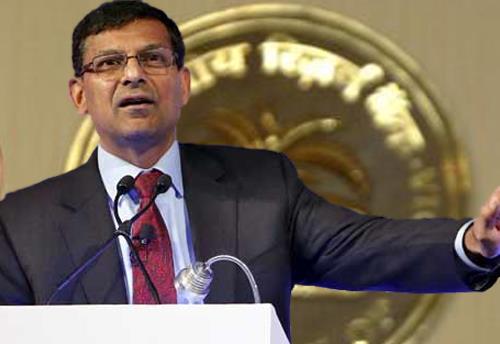
Criticism of the central bank using arguments unsupported by evidence is widespread: Raghuram Rajan
Rajan said this while addressing the 10th Statistics Day Conference 2016 held here on July 26, 2016.
Why is the debate uninfluenced by the data? Why is it that as we seem to be bringing inflation under control, public voices to abandon the fight are loud?
'I don";t know for sure but let me hazard a guess; Is it possible the political economy of inflation is different from the received wisdom we were taught in class as students? And are there parallels to the political economy of bank cleanup?,” he said.
Specifically, despite all the public commentary against inflation and its pernicious effect on the weaker sections of society, there seems to be surprisingly little anxiety in public commentary about inflation so long as it stays in the high single digits.
Industrialists welcome negative real rates of interest for obvious reasons. Many middle class savers value the high nominal interest rates on their fixed deposits, not realizing that their principal is eroding significantly every year, he said.
With no powerful and vocal political constituency getting agitated about generalized inflation so long as it is only moderately high, opponents of disinflationary policies are free to frame the debate as they wish. The persuasive way is to claim that interest rates are hurting growth.
He further said, '…there is always some sympathetic borrower who is paying seemingly excessive rates. The high prevailing borrowing rate of some small borrower – say 15 percent today -- is held out as Exhibit A of the central bank";s inconsiderate policies, never mind that the rate charged includes the policy rate of 6.5 percent plus an additional spread of 8.5 percent, consisting of a default risk premium, a term premium, an inflation risk premium, and the commercial bank";s compensation for costs, none of which are directly affected by the policy rate.”
The press is constantly urged to frame the debate as inflation versus growth, and with inflation still moderate, only the excessively conservative central bank could be against growth! Never mind that overly accommodative policy today will set up inflation for the future; Never mind that the last forty years of economic theory and practice suggests that the best way central banks can support growth over the medium term is by keeping inflation low and stable, he added.
The reality, of course, is that high inflation is not stable.
The Governor gave two examples - inflation and cleanup of bank balance sheets – two initiatives of the Reserve Bank of India.
With the help of charts, he showed that the slowdown in the growth of non-food credit by public sector banks was probably not because of lack of demand or capital; nor was it because of high interest rates but largely because of stress in public sector banks, stemming from past mistakes in lending.
'This will not be fixed just by a cut in policy rates. Instead, what is required is a clean-up of the balance sheets of public sector banks, which is underway and needs to be taken to its logical conclusion,” he stated.
Worrying that there was little anxiety in the public commentary when inflation was moderately high, the Governor argued it had pernicious effects on the weaker sections of society and stated that the fragilities associated with high inflation accumulate, and eventually lead to crisis.
'The best way central banks can support growth over the medium term is by keeping inflation low and stable,” he said and added that 'Without any political push back as inflation rises, it is necessary to build institutions to ensure macroeconomic stability.”
'Perhaps this is why successive governments, in their wisdom, have given the RBI a measure of independence,” he added.
Such concerns would also support the current government";s decision to enshrine its commitment to low inflation through a formal inflation target and the creation of a monetary policy committee, he added.
According to the Governor, as with inflation, it was easy to ignore the problem of loan losses and hope it somehow goes away. But as with inflation, loan losses had a tendency to increase, get too big to ignore, too late to manage, and push the system into crisis.
Fortunately, after an initial reluctance, banks have entered the spirit of the cleanup and some have gone beyond what was demanded of them.
The stock market, after reacting negatively initially early this year, was more supportive of public sector bank stock prices, probably reflecting the belief that the cleanup was good over the medium term, he said.
Promoters were selling assets and paying up, and new asset reconstruction companies were being started to buy assets. As with inflation, therefore, it was the duty of the central bank to press for bank clean up earlier, when few among the public support the central bank";s activism, the Governor said.
Legal Disclaimer:
MENAFN provides the
information “as is” without warranty of any kind. We do not accept
any responsibility or liability for the accuracy, content, images,
videos, licenses, completeness, legality, or reliability of the information
contained in this article. If you have any complaints or copyright
issues related to this article, kindly contact the provider above.


















Comments
No comment